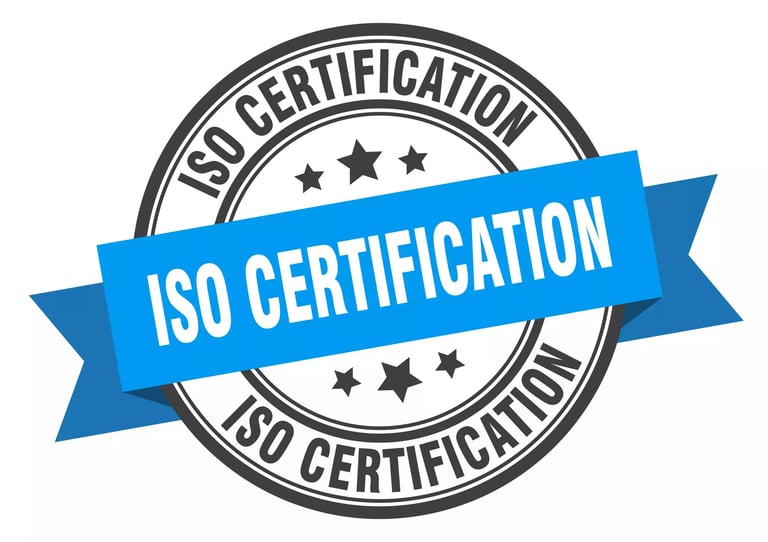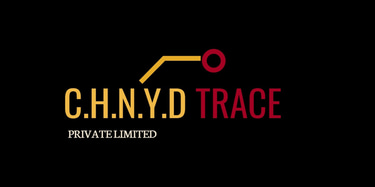what iso 27001 certification brings to the organization ?
Achieving ISO 27001 certification equips organizations with a structured framework to manage security risks effectively. By maintaining compliance with ISO 27001, organizations can not only respond to current risks but also anticipate future threats.
Pratik Barahatte
8/9/20235 min read


Understanding ISO 27001 Certification
ISO 27001 is an internationally recognized standard that specifies the requirements for establishing, implementing, maintaining, and continually improving an information security management system (ISMS). This standard serves as a critical framework for organizations aiming to protect sensitive information and ensure data integrity. With the rise in digital threats and data breaches, the importance of ISO 27001 certification cannot be overstated, as it signifies an organization's commitment to safeguarding its data assets and effectively managing information security risks.
The certification process involves several key stages, beginning with a comprehensive assessment of the organization's existing information security practices. This initial step ensures that any vulnerabilities are identified and addressed before the implementation of a fully-fledged ISMS. Once the ISMS is developed, organizations are required to undergo an external audit conducted by an accredited certification body. This audit evaluates adherence to ISO 27001 standards and confirms that the organization’s information security practices align with the established requirements.
One of the primary objectives of ISO 27001 is to protect sensitive information from unauthorized access, breaches, and theft. By adhering to this standard, organizations can implement robust security controls that help manage and mitigate risks associated with data handling. Additionally, the framework focuses on enhancing risk management, which involves regularly assessing potential threats to data and instituting appropriate measures to minimize those risks. This proactive approach not only protects vital information but also fosters a culture of continuous improvement.
In summary, ISO 27001 plays a pivotal role in today’s complex digital landscape. By understanding the certification process and its objectives, organizations can better appreciate the significance of implementing an ISMS that meets international standards, ultimately leading to greater organizational excellence and resilience against emerging security challenges.
Key Benefits of ISO 27001 Certification
ISO 27001 certification offers a multitude of benefits, both tangible and intangible, that can significantly enhance an organization’s information security management system (ISMS). One of the primary advantages is the enhanced data security that ISO 27001 provides. By adhering to a systematic approach to managing sensitive information, organizations can identify potential risks and implement appropriate controls to mitigate them. This proactive stance not only protects against data breaches but also helps safeguard organizational reputation.
Improved risk management practices are another critical benefit of obtaining ISO 27001 certification. The framework requires organizations to conduct regular risk assessments, allowing for the identification and prioritization of security risks. By establishing a culture of continuous improvement, organizations can adapt to evolving threats more effectively and ensure that their risk management strategies remain robust and relevant.
Customer confidence and trust also receive a significant boost through ISO 27001 certification. In an age where cybersecurity is a paramount concern, demonstrating compliance with an internationally recognized standard assures customers that their data is handled with the utmost care and professionalism. This assurance can lead to increased customer loyalty and potentially result in stronger business relationships.
Organizations certified under ISO 27001 often enjoy a competitive advantage in the marketplace. Compliance with this standard can differentiate a business from its competitors, making it more appealing to customers prioritizing data security. Furthermore, regulatory compliance becomes streamlined through ISO 27001, as it addresses various legal and regulatory requirements surrounding information security. This not only reduces legal risks but also enhances operational efficiency by aligning business processes with regulatory frameworks.
In summary, the multifaceted benefits of ISO 27001 certification, including enhanced data security, improved risk management practices, increased customer confidence, competitive advantage, and compliance with regulations, collectively contribute to better organizational reputation and operational efficiency. Embracing this standard allows organizations to position themselves as leaders in information security.
Implementation Challenges and Solutions
Implementing ISO 27001 certification within an organization can present several challenges that require careful consideration and strategic planning. One of the primary issues organizations encounter is resource allocation. Given the extensive requirements of ISO 27001, it is essential to budget both financial and human resources adequately. Many companies, particularly smaller ones, may struggle to commit the necessary funds or personnel, which can hinder the certification process.
Another significant challenge is employee training. For successful ISO 27001 implementation, all staff members must understand their roles in maintaining information security and compliance. Organizations often face difficulties in providing sufficient training and ensuring that employees are engaged and informed. A lack of awareness can lead to inconsistencies and gaps in security practices, ultimately jeopardizing the effectiveness of the management system.
Integration with existing systems also poses a challenge. Many organizations have established processes and technologies that may not align with ISO 27001 requirements. This integration can require modification of current practices, systems, and software, which could lead to resistance from employees or complications within workflows. Thus, overcoming this challenge necessitates careful planning and a clear communication strategy to illustrate the benefits of such integration, fostering a smoother transition.
To address these challenges, organizations can adopt several practical solutions. Firstly, conducting a thorough resource assessment can help allocate roles and responsibilities effectively, ensuring all aspects of the certification are covered. Regular training sessions and workshops can enhance employee understanding, highlighting the importance of information security. Additionally, leveraging technology solutions that facilitate integration and automate certain processes can ease the burden of compliance.
In conclusion, while the challenges associated with implementing ISO 27001 certification are significant, they are manageable with a proactive and structured approach. By anticipating potential issues and applying targeted solutions, organizations can not only achieve certification but also strengthen their information security posture and overall operational efficacy.
The Future of Information Security with ISO 27001
As the landscape of information security continues to evolve, organizations face a multitude of threats that can undermine their operational integrity and trustworthiness. Achieving ISO 27001 certification equips organizations with a structured framework to manage security risks effectively. This standard emphasizes a continual improvement process that helps organizations adapt to emerging challenges and technological advancements in the realm of information security. By maintaining compliance with ISO 27001, organizations can not only respond to current risks but also anticipate future threats.
The continual improvement aspect of ISO 27001 entails regular assessments, audits, and updates to security protocols. It encourages organizations to analyze not only their existing risk management processes but also to remain vigilant about potential vulnerabilities. This proactive approach fosters a culture of resilience within the organization, whereby teams are consistently evaluating their practices and adapting to changing circumstances. As new threats emerge, organizations benefiting from ISO 27001 certification will be more agile in their response, ensuring that their information security measures are not only effective but also relevant.
Furthermore, being ISO 27001 certified significantly enhances an organization’s reputation in the market. Clients and stakeholders are increasingly looking for organizations that prioritize information security, and ISO certification serves as a testament to a company’s commitment to safeguarding sensitive data. A robust reputation can pave the way for long-term growth and sustainability, as businesses that demonstrate stringent information security measures are often preferred partners in contracts and collaborations. As the demand for secure operations continues to increase, organizations that embrace ISO 27001 will find themselves well-positioned to thrive in an ever-competitive environment.




